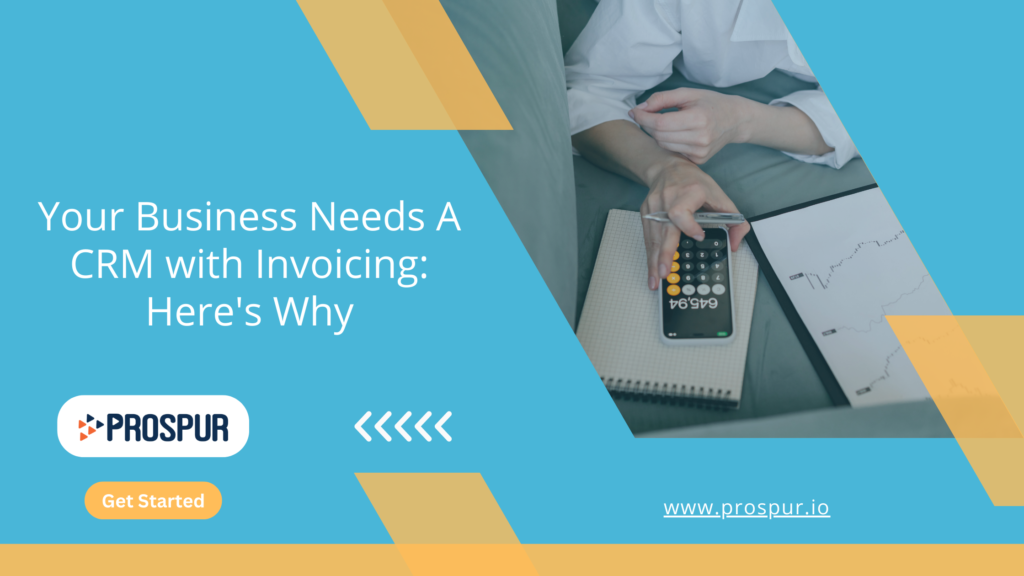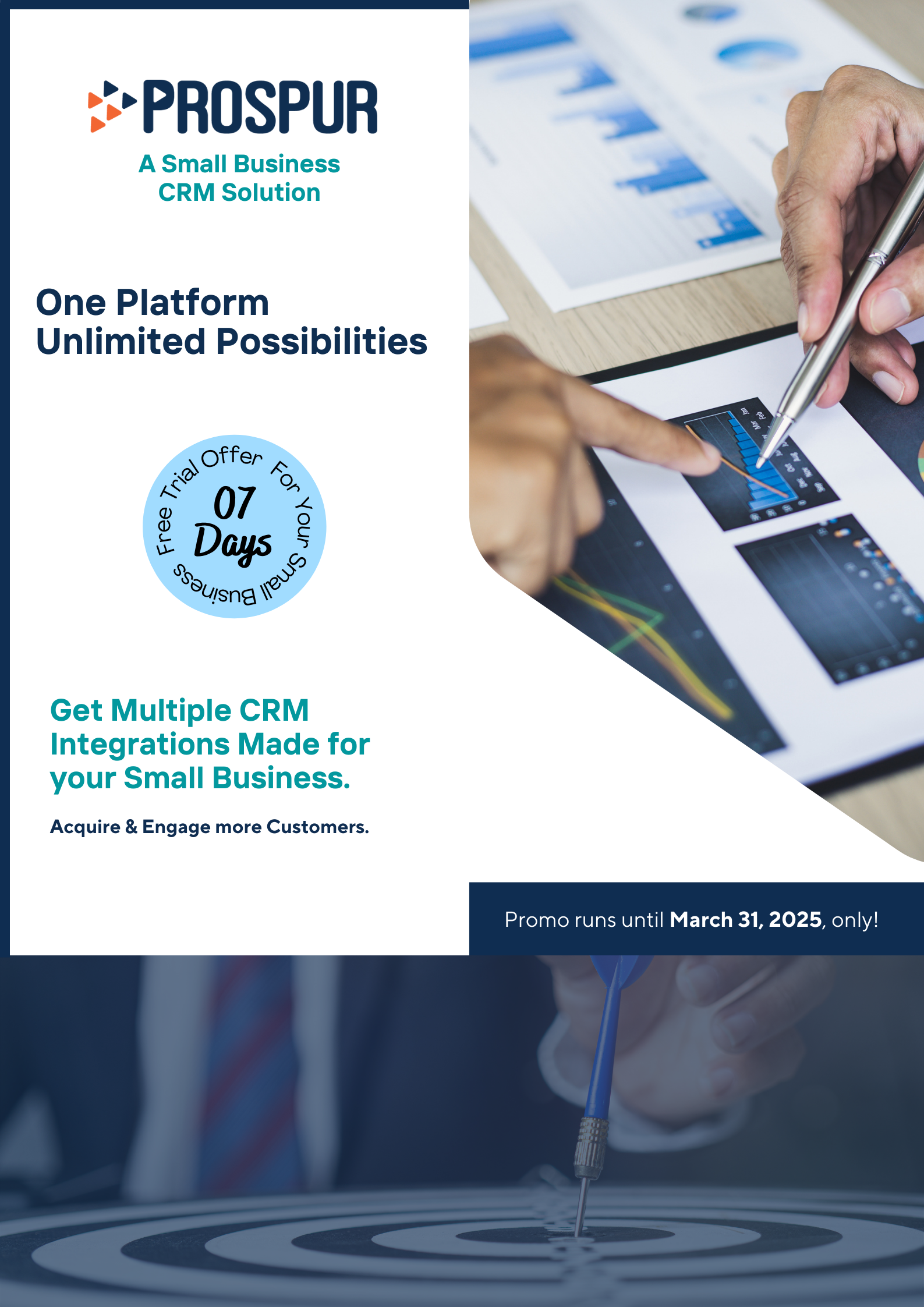Your Business Needs a CRM With Invoicing – Here is Why
Editorial StaffSeptember 7, 2022

While most companies focus on the product and service, they overlook the billing experience of a customer.
Issues such as errors in statements, mismanaged subscriptions, duplicate billing, credit card expiry, and errors in renewal add to customer dissatisfaction.
According to a report, 50% of customers said they would switch companies after a single instance of poor customer service. Billing and invoicing are critical parts of customer service and cannot be ignored.
CRM is your one-stop software for managing all the information, including marketing, leads, sales, and reports.
Having a CRM with invoicing makes a lot of sense when you want to tie every incoming or outgoing dollar with its source directly without the need to export the data to another software.
Prospur brings this capability in its cloud-based CRM for small and medium businesses. This is a powerful feature for businesses that want the capabilities of a large CRM on a limited budget.
Let us investigate, in greater detail, the benefits of having a CRM with invoicing feature.
Why Your Business Needs to Consider Prospur CRM with Invoicing:
Businesses need to know where their revenue is coming from. And the easiest way to do that is to integrate the CRM system with invoicing features. Here are the benefits –
#1. Consolidated Data
Integrating all the data should be the priority of any small and medium company, even if it is not posing any challenge.
Once the company starts to grow bigger, data silos form quickly, and salvaging it later is not only expensive but also time-consuming. CRM systems integrate most sales and marketing data to produce extensive reports.
By integrating invoicing into the CRM, you can send an invoice to the client with a payment link as soon as the deal is closed. This accelerates the process and connects the payment directly to the client record in the system.
You don’t have to rely on other tedious methods such as emails and telephone calls that are sometimes difficult to track without a CRM system.
This also reduces the chances of any errors in manual data entries making your records accurate and up-to-date all the time.
#2. Revenue Analytics
As your business grows, you may receive hundreds or thousands of payments in a day.
For example, a small restaurant in a busy city could receive many customers every hour, each paying through different modes, including cash, credit card, or other digital payment options.
An e-commerce startup that receives payments from across the world could easily miss certain payments that the customer never made or forgot.
Any business needs to stay on top of its revenue flow. This includes knowing where the payments are coming from and the ones falling through the cracks.
A CRM system with invoicing features can generate comprehensive reports for management. This way, you can identify patterns and ask your sales teams to focus on the deals that initiate but don’t reach closure with payment.
#3. Saving Time
If you have two different systems for invoicing and customer relationship management, your team’s time will be wasted while manually uploading the records.
Even API interfaces or automated excel sheet-based uploads can be unreliable and sometimes do not work as expected.
For companies that have a wide range of products and product families, this could be a tedious task, and tracking inconsistencies could be impossible.
By integrating the invoicing function into the CRM, you can reduce manual effort and eliminate any chances of data discrepancies.
When you make a sale and the customer pays, the CRM system automatically generates and sends the invoice. It also maps it to the customer and the entire transaction history within the system.
Final Thoughts:
The CRM system will incorporate the promotional codes into the invoice directly and even do currency conversions if you work with international clients.
Customers can also save the extra money they may have to pay for third-party payment gateways.
By having the invoicing feature built into the CRM system for small and medium businesses, you can achieve all the above benefits and thus make financial analysis easier.
This also lets you focus more on your business and increases opportunities to create new revenue streams.

